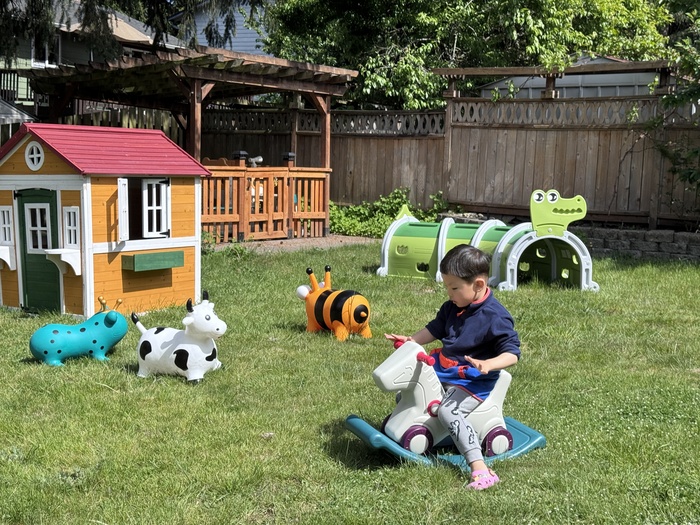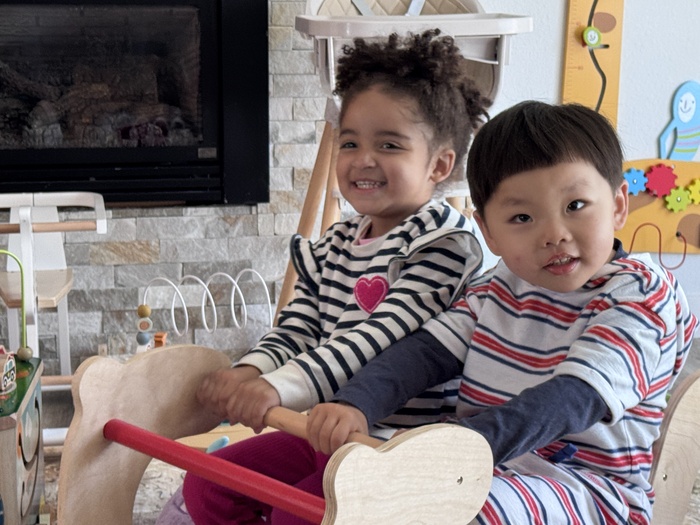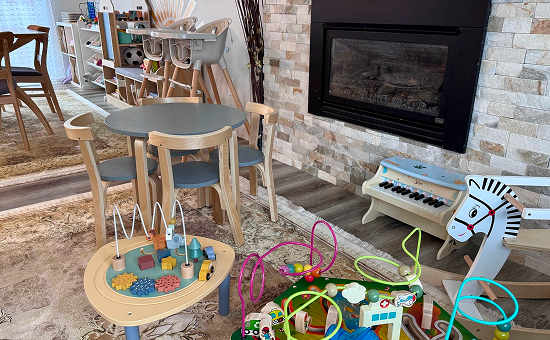As a parent, you may wonder, “What does my child do in daycare all day?” Daycare offers a nurturing, structured environment where children aged 0–5 engage in activities that promote growth, learning, and joy. From playful exploration to building early social skills, a daycare day is thoughtfully designed to support your child’s development while keeping them safe and engaged. Understanding this routine can ease your mind and help you feel confident in your childcare choice. This article provides a detailed look at a typical daycare day, tailored to infants, toddlers, and preschoolers, with insights into how these activities foster growth. For exceptional care in Bothell and Mill Creek, explore daycare Bothell at Kido Heaven.
The Structure of a Daycare Day
A daycare day follows a predictable routine to provide children with stability and security, essential for their emotional and cognitive development. While routines vary based on age, they follow a general framework to balance activity, rest, and nourishment.
Why Routines Matter in Daycare
Structured routines help children feel safe and confident, as predictability fosters a sense of control. According to the National Association for the Education of Young Children (NAEYC), consistent routines support emotional regulation and help young children transition between activities smoothly. For example, knowing that storytime follows lunch helps children anticipate and prepare, reducing anxiety and enhancing engagement.
Overview of a Typical Schedule
A typical daycare day includes the following sequence:
- Morning: Arrival, greeting activities (e.g., singing songs), and free play to start the day.
- Mid-Morning: Group activities (e.g., circle time or storytime), followed by outdoor play.
- Midday: Educational activities or arts and crafts, then lunch and nap or rest time.
- Afternoon: Creative play, group games, a snack, and quiet activities (e.g., puzzles).
- Late Afternoon: Free play or outdoor time until pickup.
Infants have more frequent naps and sensory-focused activities, toddlers engage in exploratory play, and preschoolers participate in pre-academic tasks.

Core Activities in Daycare
Daycare activities are designed to be both fun and purposeful, supporting social, cognitive, and physical growth. Below are the key activities that fill a child’s day, fostering skills like social-emotional development, learning, and confidence.
Play-Based Learning
Play is central to daycare, fostering creativity and problem-solving. Free play with toys or guided activities like building with blocks helps children develop cognitive skills. Pretend play, such as “playing store,” encourages imagination and social interaction. A 2018 study by the American Academy of Pediatrics highlights that play-based learning enhances executive function, critical for school readiness. For example, a toddler stacking blocks learns spatial reasoning, while a preschooler role-playing develops empathy.
Educational Activities
Daycare introduces early learning through engaging, age-appropriate tasks. Toddlers might sing songs to learn colors, while preschoolers practice counting during group games. Storytime builds literacy skills, and arts and crafts, like painting, enhance fine motor skills. These activities align with developmental milestones, such as language development for preschoolers, preparing them for kindergarten.
Physical Activities and Outdoor Play
Physical activity is vital for health and motor skill development. Children run, climb, or play games like “Simon Says” to build coordination. Outdoor play, such as exploring a playground or observing plants, supports gross motor skills and encourages curiosity. The CDC recommends at least 60 minutes of daily physical activity for young children, which quality daycares prioritize.
Social Interaction and Group Activities
Daycare fosters social skills through group activities like circle time, where children share stories or sing together. Cooperative games, such as “pass the ball,” teach teamwork and communication. These interactions help children develop empathy, conflict-resolution skills, and self-confidence, essential for social-emotional growth.
Rest and Nap Time
Rest is crucial for young children’s growth and emotional well-being. Infants have multiple naps, toddlers typically nap for 1–2 hours, and preschoolers may have quiet time. Daycares create calming environments with soft music or dim lights to support rest, ensuring children stay energized.

Meals and Nutrition in Daycare
Meals and snacks are integral to a child’s daycare day, providing energy and fostering healthy habits.
Typical Meal Schedules
Daycares typically offer breakfast, lunch, and one or two snacks throughout the day. Many accommodate dietary restrictions, such as allergies or cultural preferences, ensuring every child’s needs are met.
Nutritional Standards
Meals follow guidelines like those from the USDA’s Child and Adult Care Food Program, emphasizing balanced nutrition with fruits, vegetables, whole grains, and proteins. These meals support children’s energy needs for active play and learning.
Teaching Healthy Habits
Caregivers encourage habits like handwashing before meals and trying new foods. For instance, a child might be praised for tasting a new vegetable, fostering openness to healthy eating.
How Daycare Supports Child Development
Daily activities in daycare contribute to long-term growth, addressing key areas like social-emotional skills, cognitive development, and confidence.
Cognitive and Academic Growth
Activities like puzzles, storytime, and music enhance cognitive skills. A 2019 study from the National Institute of Child Health and Human Development found that quality daycare programs improve school readiness. For example, counting games during group activities build numeracy skills, while observing plants during outdoor play sparks scientific curiosity.
Social and Emotional Development
Interactions with peers and caregivers build emotional resilience. Sharing toys during playtime teaches conflict resolution, while group activities, like singing in circle time, foster teamwork, empathy, and self-confidence. These skills are critical for forming healthy relationships.
Physical and Motor Development
Physical activities, like climbing or dancing, improve coordination and health. Pediatric guidelines note that motor skill development in early childhood supports lifelong physical fitness, which daycare supports through active play. Variations by Age Group
Daycare activities are tailored to a child’s developmental stage, ensuring age-appropriate engagement.
Infants (0–12 Months)
Infants engage in sensory play, like touching soft toys or listening to music, and have frequent naps. Caregiver interactions, such as cuddling, support emotional bonding.
Toddlers (1–3 Years)
Toddlers explore through play, learning colors, shapes, or simple songs. They begin social interactions, like sharing, and enjoy active play to build motor skills.
Preschoolers (3–5 Years)
Preschoolers participate in pre-academic tasks, like letter recognition, and structured group activities. They develop independence through tasks like cleaning up toys.

The Role of Caregivers in Shaping the Day
Caregivers are the backbone of a daycare’s success, guiding activities and fostering a supportive environment.
Caregiver Qualifications
Many caregivers hold certifications in early childhood education, meeting NAEYC standards. Their training ensures they can support diverse developmental needs.
Interaction with Children
Caregivers model positive behavior, such as sharing, and provide emotional support. For example, they might encourage a shy child to join a group game, boosting confidence. At daycare Bothell in Kido Heaven, caregivers create a warm, inclusive space for every child.
Conclusion: Why Understanding Daycare Activities Matters
A typical day in daycare is a blend of play, learning, meals, and rest, all designed to nurture your child’s growth. From building social-emotional skills through group games to sparking curiosity with storytime, these activities create a foundation for lifelong learning. By understanding what your child does in daycare, you can feel confident that they’re in a safe, supportive environment. Visit Kido Heaven in Bothell and Mill Creek to see how we make every day special for your child, or explore our guide on choosing the right daycare for more insights.
FAQ
1. Is My Child Safe and Engaged?
Daycares prioritize safety with childproofed spaces and appropriate staff-to-child ratios (e.g., 1:4 for infants, per NAEYC). Engaging activities ensure children stay active and interested.
2. How Will My Child Adjust to Daycare?
Transitioning to daycare can be challenging. Caregivers ease this by offering comfort and consistency. Parents can help by visiting the daycare beforehand or sending a familiar toy.
3. How Do I Know If the Daycare Is Right?
Observe the environment, ask about caregiver qualifications, and check reviews. A quality daycare, like Kido Heaven, offers transparent communication and a welcoming atmosphere.



